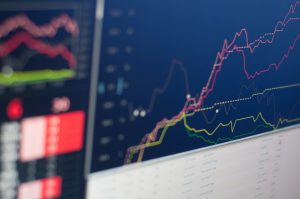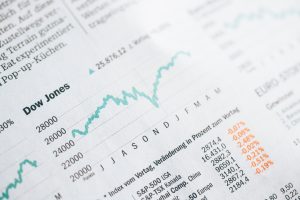The 35th AGM and Conference of the Pakistan Society of Development Economists (PSDE), on “Opportunities to Excel: Now & the Future”, hosted by the Pakistan Institute of Development Economics (PIDE), in collaboration with the Institute of Management Sciences (IMSciences), was inaugurated today in the IMSciences auditorium. The AGM and Conferences of the PSDE were inaugurated by Mr. Muhammad Aurangzeb, President and CEO of HBL. The Conference is being sponsored by the World Bank Group, CPEC Center of Excellence, the Bank of Punjab, Friedrich-Ebert-Stiftung (FES), Gul Ahmed Textile Mills Limited, NPO Pakistan, HBL, PPAF, Saif Group of Companies, PMIC, and the Bank of Khyber.
"All socio-economic groups should contribute towards Pakistan's development & growth. #HBL is playing its role through fostering an ecosystem driven by innovation and financial inclusion." Muhammad Aurangzeb, President & CEO – HBL, at the @PIDEpk's #PSDE_Conference@StateBank_Pak pic.twitter.com/LpAXROLT53
— HBL (@HBLPak) November 22, 2021
Dr. Nadeem Ul Haq, Vice-Chancellor PIDE and president of the PSDE, in his presidential address, expressed his gratitude for the overwhelming participation and magnanimous support from IMSciences. Dr. Nadeem said in this Conference we would not talk about macroeconomics, IMF, poverty, aid, taxes, welfare, equality and so on. These ideas are kind of obsolete when we talk about “opportunity”. What is meant by opportunity? Each Pakistani, especially the youngsters should reflect on it. We don’t think of creating an opportunity. Shouldn’t we focus on self-realization and self-actualization? We care only about earning, why not about learning the means? The government talks about welfare but not the opportunity. Why don’t we as a nation ponder over these thought-provoking questions? Why do we have a feeling of despondency? VC PIDE asked these questions, giving enough food for thought to the participants to think and debate. He also asked, is an opportunity only to get low-quality education and end up not getting a job? Dr. Nadeem said that even for low-level jobs, there are a very high number of applicants, often overqualified.
You don't know what you are missing. The platform where the genius brains meet #PSDE_Conference where all of us talk about #PIDE_Opportunity in @IMSciences_Pesh a joint venture #PIDExIMSciences
— Pakistan Institute of Development Economics (PIDE) (@PIDEpk) November 22, 2021
Stay tuned on PIDE FB & YT. @nadeemhaque @durre_nayab_ @saddameconomist @drniqbal pic.twitter.com/scO5cuhJgI
He said that according to official statistics, the overall unemployment rate is very low at 6.9%. However, if we unpack the numbers in the latest Labor Force Survey (LFS), a very different picture emerges. For example, 79% of females and 32% of males are out of the labor force. So, should we take the official 6.9% unemployment rate figure seriously, or should we dig deeper? There is also an extremely high unemployment rate among Pakistani youth. Similarly, a high proportion of workers in the labor force, especially females, who are unpaid. Most people are stuck in low-end jobs, evident from the fact that most of the workers get wages that are lower than the current minimum wage of PKR. 25,000.
Dr. Haque further said that the returns to education in Pakistan are also very low, as 50% of graduates with a university degree do not gain much by getting higher education. The question then arises, what are the opportunities that we are offering our youth. These factors are resulting in highly discouraged workers and significant dropout rates.
Therefore, there is an urgent need to explore opportunities to excel. We need to realize potential, i.e., self-actualization, create excellence, develop market for talent, improve hard and soft infrastructure, and realize that opportunity is more than education and capability.
33.8% of the youth is neither in school nor employed. This indicates a sense of widespread pessimism and despair – a recipe for disaster. How can we create opportunities for our children? Join us: https://t.co/TSa9JTr3KD #PIDE_Opportunity #PSDE_Conference pic.twitter.com/ZpZJrzEnXe
— Abbas (@AbbasMoosvi) November 22, 2021
Vice-Chancellor, PIDE said that opportunities for the youth are squeezed because the government is present everywhere and in every market. He apprised the audience that according to PIDE research, the government’s footprint on the economy is approximately 60-80% of the economy. He said that we need to focus on “opportunity now” for our youth. Building further on his ideas, Dr. Haque stated that to create opportunity, we need deregulation, efficiency, vertical cities, market, appropriate wages. Red tape, sludge, useless NOCs, old school processes should be done away with. It wastes time and thus thwarts opportunities. Vertical cities should be encouraged, so that denser cities can be erected, allowing the provision of opportunities for everyone. Talent, innovation, and diversity should be the way out. Towards the end of his talk, VC PIDE was of the view that the green economy, digitalization, automation, robotics, biotechnology, and artificial intelligence is the future. Pakistan, specifically its youth to set its direction right to embrace the opportunities around us. He said that instead of creating “SRO billionaires”, we must focus on creating “market billionaires”.
In his inaugural address, Mr. Muhammad Aurangzeb, President and CEO HBL, expressed his immense happiness to be able to come to the Conference and support this initiative. Coming all the way from Karachi just to attend this conference is worth it, he remarked. Mr. Aurangzeb, while contextualizing HBL services, talked about the opportunities HBL is providing to the youth, especially in far-flung areas. In just three years, HBL has increased its customer base from 12 million to 27 million and aims to reach 50 million in the coming few years. Most of it has been possible through branchless banking and linking small stores in rural areas and villages to the baking system. In line with the PIDE’s opportunity theme, the Bank has also been supporting a fintech start-up, so to create more opportunities. HBL is striving hard to modernize its systems each passing day and facilitate its customers with the minimum transaction cost possible. He appreciated PIDE’s valuable research and input regarding the economy and public policy while concluding his remarks.
Earlier, in his welcome address, Dr. Muhammad Mohsin Khan, Director welcomed the PIDE team and all the participants to the Conference and assured PIDE its full support till the closure. The Director was particularly overwhelmed by the bold decision of VC PIDE to hold a conference this time in Peshawar, Khyber Pakhtunkhwa. Dr. Khan looked forward to more such future collaborations between PIDE and IMSciences and hoped that this event should turn into a mutually beneficial relationship. Moreover, he introduced IMSciences and what it envisioned at the time of its inception. IMciences strived to be what LUMS is to Lahore and IBA is to Karachi. Mr. Khan was confident that the institute has done exceptionally well so far and would soon catch up with these educational pivots. IMSciences’ incubation and Career Counselling centers are doing an amazing job, bringing opportunities for its students to their doorsteps. I am excited that the next four days would be a great experience of cross-sharing of knowledge and ideas, he concluded.
Dr. Idrees Khawaja, Secretary PSDE, presented the secretary’s report of the PSDE. He welcomed all the participants to the 35th AGM and Conference of the PSDE and PIDE, hosted in collaboration with IMSciences, Peshawar. He told the audience that the sub-themes include: (a) Nurturing Ideas and Accessing Opportunities, (b) State for the 21st Century, (c) Sludge – Frictions, that Constrain Activities and Growth, (d) Making Markets Work, (e) Inclusive Cities: People and Place and (d) Political Economy of Information. The titles of all the themes reflect how deep PIDE wishes to pursue the dynamics surrounding opportunity. Pakistan has a great asset in the form of a youth bulge, but we have not yet been able to turn it into opportunity. Why not? Over the next three days, we would decode and try to come up with many answers for the very same questions, remarked Dr. Khawaja. PIDE firmly believes that there should be opportunities for everyone irrespective of the social fabric. The Conference will try to generate an informed debate around the theme and sub-themes, as the reform process cannot begin without a discourse that is not directionless. In this context, PIDE is trying its best to be the flag bearer of setting the direction for all economic and policy matters. The Secretary further added that this year PIDE has revived the practice of inviting students from across the country. The practice was first invited back in 2006 when the same Dr. Nadeem Ul Haq was the Vice-Chancellor. Around 200 students are invited from across Pakistan.
Besides these, renowned speakers from diverse backgrounds will also be joining. These include Taimur Khan Jhagra, Minister for Finance Khyber Pakhtunkhwa; Mr. Muhammad Aurangzeb, President and CEO, HBL; Arshad Ahmed, Vice-Chancellor, Lahore University of Management Sciences (LUMS); Hans Timmer; Regional Chief Economist, World Bank; Tochen Hippler, Country Director, Friedrich Ebert Stiftung and Dr. Hafiz Pasha, the former Federal Minister, and many others, Dr. Khawaja added. He also stated that PIDE has received 105 papers, out of which only 30 have been accepted after a rigorous reviewing process. The papers received were from Germany, China, India, the World Bank and, of course, from Pakistan. Afterward, he shared with the participants that over the next few days PIDE would also try to examine society and economy in the background of the fourth industrial revolution. Towards the closure of the conference, we want to come up with indigenous and contextualized solutions. Dr. Khawaja, while closing his remarks thanked IMSciences management.








